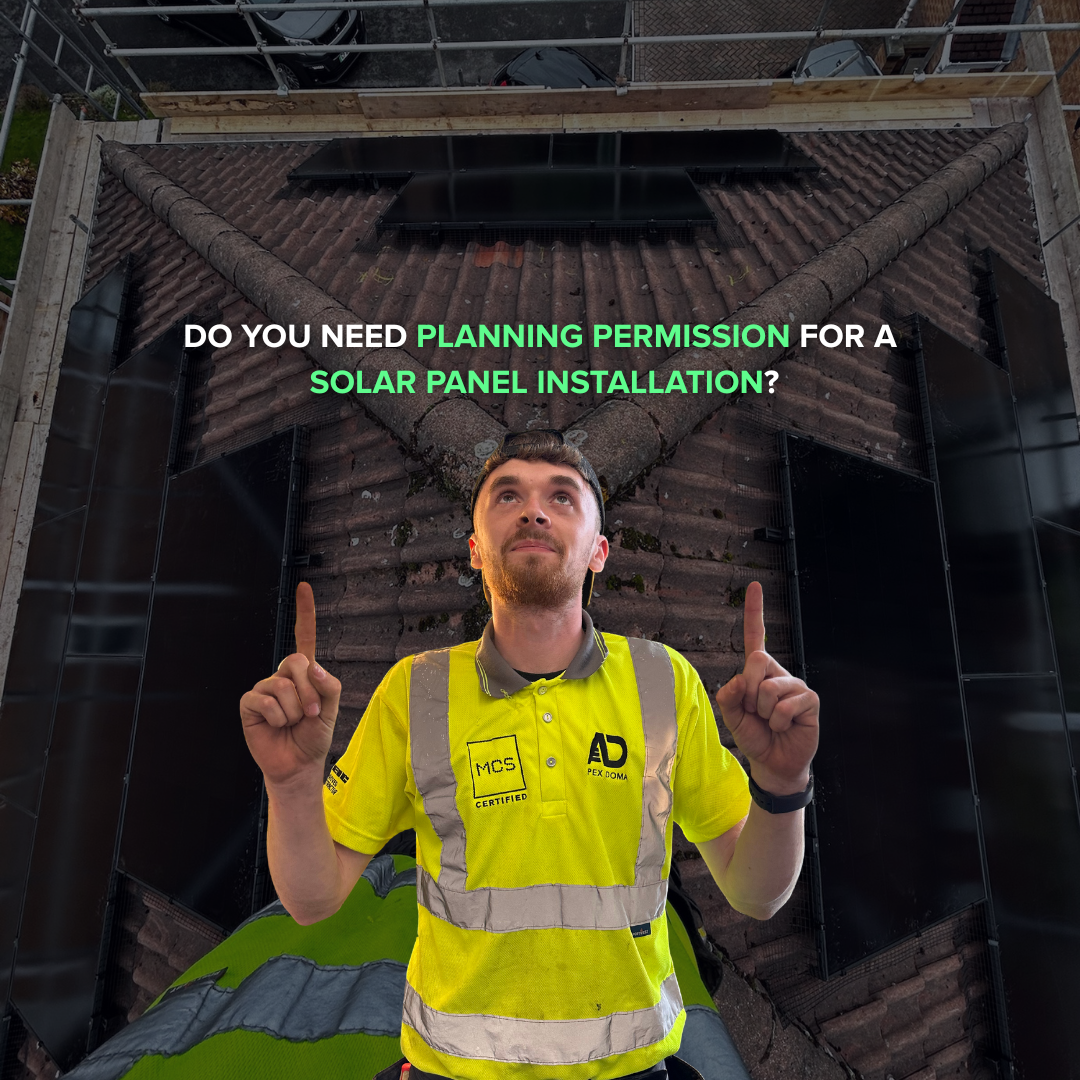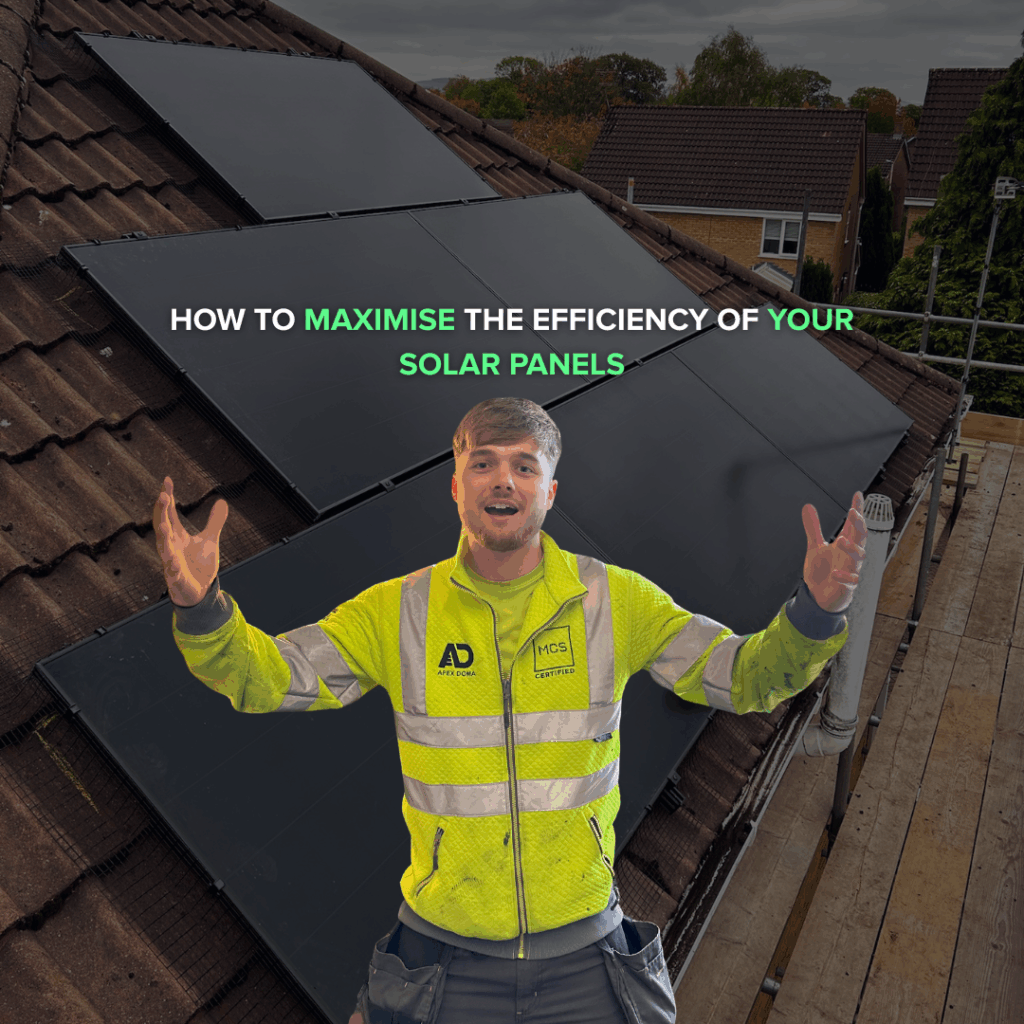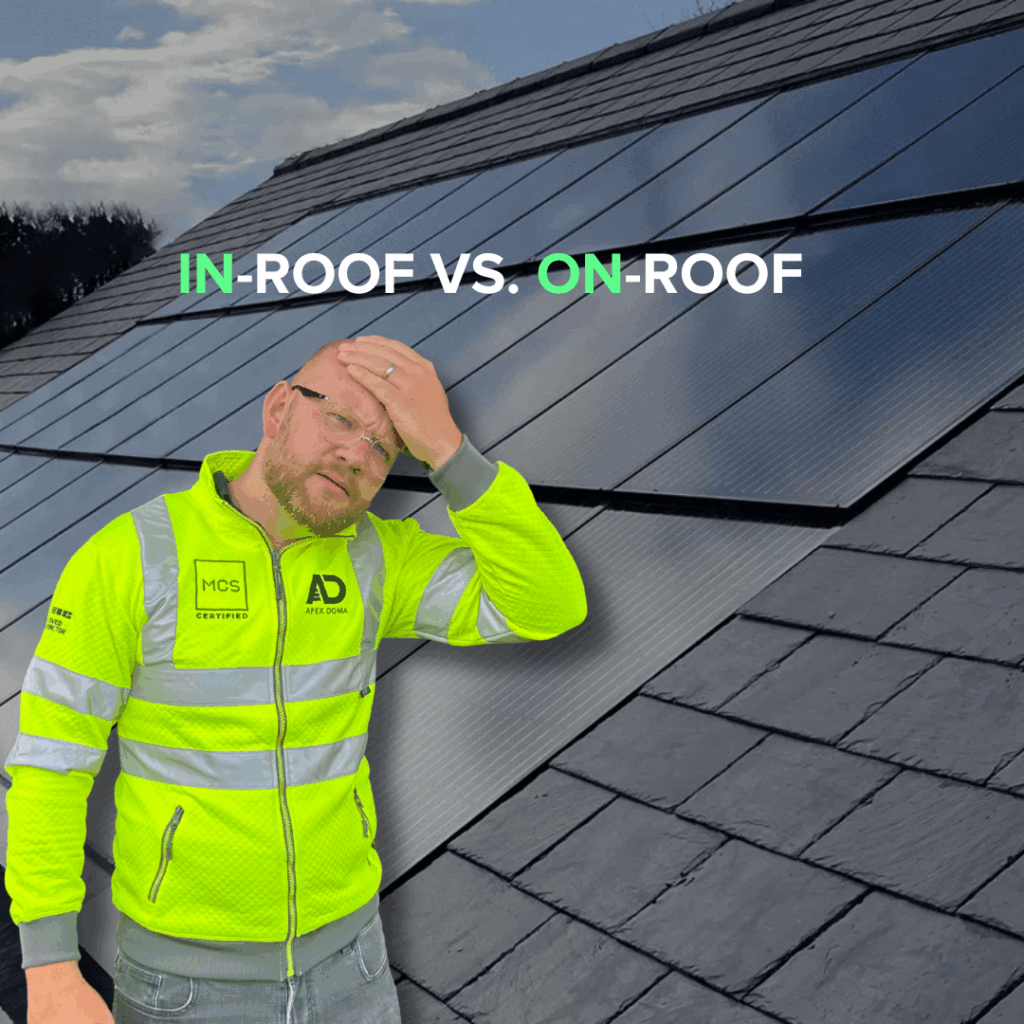If you’re thinking about switching to solar, one of the first questions that might come up is whether planning permission is needed for the installation.
The good news is that, in most cases, solar panels are classed as permitted development, meaning you can install them without going through a lengthy approval process. However, there are certain situations where permission is required.
In this article, we’ll cover when solar panels are considered permitted development, the situations where planning permission is required, and how the application process works.
Ready for bespoke advice? At Apex Doma, our highly experienced team provides tailored solar panel and battery storage services, guiding you through regulations with clarity and expertise. Get in touch and we’ll happily discuss if you need planning permission or not for your solar installation.
When Are Solar Panels a Permitted Development?
Permitted development rights allow certain improvements to be made to a property without needing formal planning consent, and solar panels often fall within these rules.
Roof-mounted systems are usually accepted, provided they don’t project more than 200mm from the roof surface and are positioned to reduce visual impact. Ground-mounted panels can also be covered, but only if they meet restrictions on height, size, and distance from the property boundary. These guidelines aim to encourage renewable energy while protecting local character.
In many cases, homeowners choose solar panels alongside battery storage as part of a wider system, and these installations are also treated as permitted development when the same conditions are met.
Situations Where Planning Permission Is Required
Planning permission may be needed depending on various factors. Common examples include:
- Conservation areas and listed buildings – Installing solar panels on listed buildings or properties in conservation areas requires official consent due to heritage protections.
- Flats, apartments, and shared roofs – Shared buildings usually need approval because multiple property owners are involved.
- Commercial properties – Business sites often require consent where larger systems alter the external appearance of the premises.
- Large-scale or ground-mounted solar panels – Approval must be obtained if panels are installed at a distance from the main property.
- When development rights are restricted – Local councils sometimes impose restrictions that make planning approval necessary for all solar installations.
Still not sure if the above applies to you and your property? Our accredited engineers take the stress out of planning application questions, ensuring your solar project runs smoothly. Contact us today to discuss your installation.
Building Regulations for Solar Panels
Planning permission focuses on where solar panels can be installed and the effect they have on the surrounding area. Building regulations, however, deal with the quality of the installation itself and set the safety standards that must be met.
A key part of this is the roof structure. It needs to be strong enough to carry the extra weight of the panels, which is why roof loading assessments are so important.
Once the structure is confirmed as suitable, attention turns to electrical safety.
The system has to be connected in a way that prevents faults and keeps both the property and its occupants safe. Fire safety is another critical consideration, particularly when a solar setup includes battery storage.
The most reliable way to meet all these requirements is to work with certified solar installers. Apex Doma’s engineer-led team applies strict standards throughout the process, giving you peace of mind that your installation is fully compliant. Want to learn more about us? Meet our team.
Common Planning Mistakes to Avoid
When planning a solar installation, there are a few mistakes that can cause delays, unnecessary costs, or even refusal of permission.
Checking the rules that apply to your property is essential. Skipping this step can result in panels being fitted where they are not allowed, leading to costly changes later.
Panel placement is another common issue. Panels positioned too close to the roof edge or angled poorly can create glare and raise safety concerns.
Choosing non-accredited installers adds further risk, as poor workmanship may fall short of building regulations and compromise long-term performance.
Neighbour considerations are equally important. This is because overlooking how an installation affects surrounding properties can invite objections, which may slow the project.
Working with certified engineers helps avoid all of these pitfalls and keeps the process straightforward.
How Long Does Solar Panel Planning Permission Take?
The approval process for solar panel planning applications usually takes between six and eight weeks. Timescales can vary depending on the local authority and the complexity of the project, but this period is typical for most residential applications.
Delays are more likely if the application lacks detail or if additional assessments are required. Professional installers can help streamline the process, as they know what information needs to be included and how to present it correctly.
Our experts provide this support from the outset, reducing the risk of delays and keeping your project on track. Book a free consultation today to request a tailored solar energy quote and start planning your installation with confidence.
Can Planning Permission Be Refused?
Planning permission for solar panels can be refused if a council raises concerns about the impact of the installation. Decisions often relate to the effect on the appearance of the surrounding area, heritage protections in conservation zones, as well as the need to prevent listed buildings.
Applications may also be rejected if there are doubts about structural safety or if the information provided is incomplete.
If permission is refused, you have the right to appeal. Supplying clear drawings, technical evidence, and professional input can strengthen your case and improve the likelihood of success.
Planning Permission For a Solar Panel Installation FAQs
Can neighbours object to solar panels?
Yes, neighbours can raise objections to a solar panel installation, but applications are usually approved if the design meets planning rules and safety standards.
How can Apex Doma help with planning permission for solar panels?
At Apex Doma, we’ve spent years helping homeowners through the planning permission process for solar panels. We put our clients’ needs first, guiding them through the process and carrying out installations to the highest standard so everything meets the required regulations.
Are there government incentives for solar panel installations?
Yes, there are incentives, such as the Smart Export Guarantee (SEG), which allows you to earn money for any extra electricity your panels produce. It’s a simple way to cut bills faster and get more value from your system.



